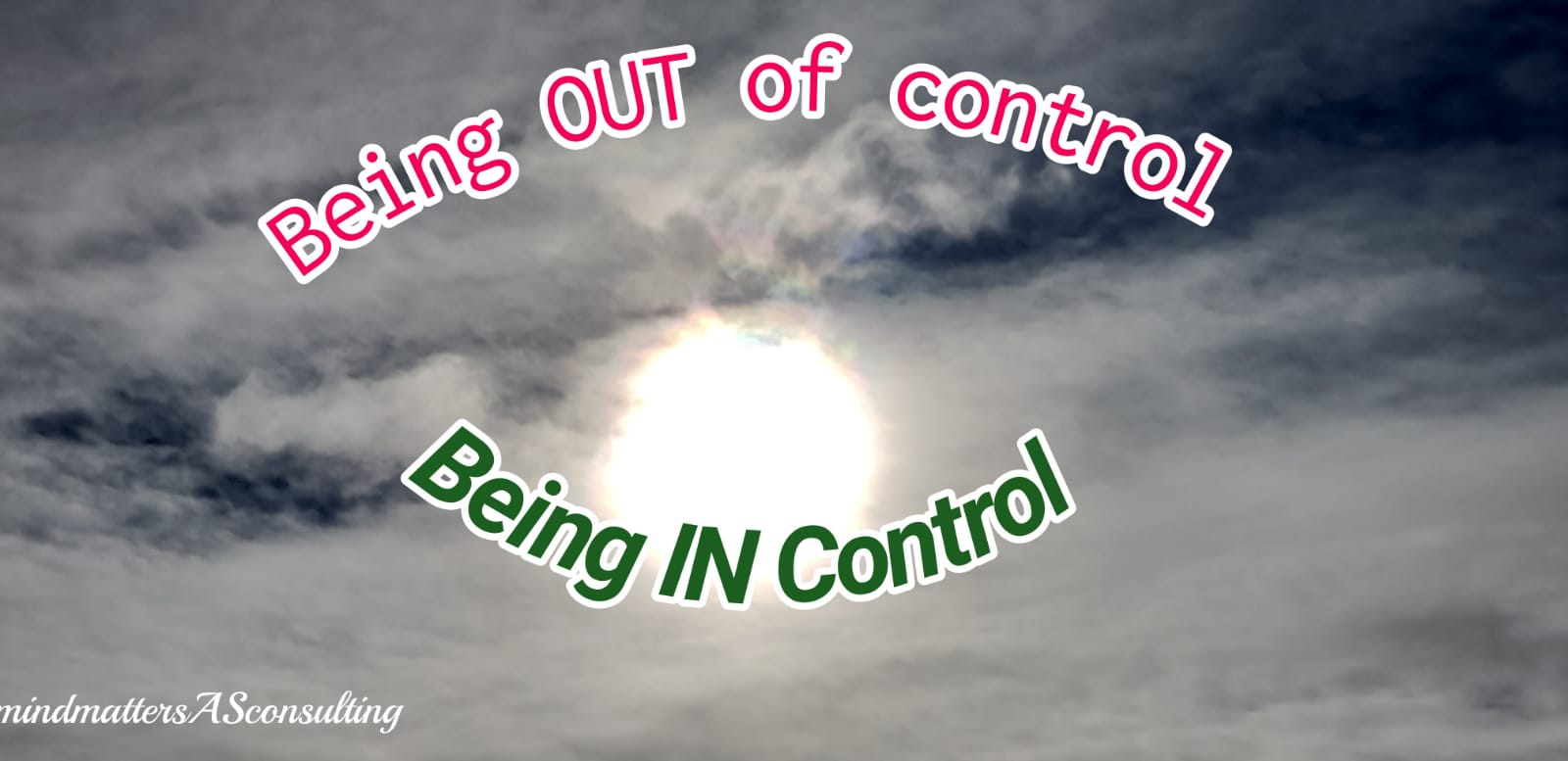OUT OF CONTROL >>>>>>BEING IN CONTROL
The crisis in 2020 of fighting the novel coronavirus continues into 2021. So, for you, 2021 brings with it all the anxiety, fear and uncertainty of 2020 and more, as now you know that this will be your life for the foreseeable future.
Despite your best efforts to stay safe and positive, you’re still reeling from the many losses you suffered in 2020. You’re left wondering if you have any control over your life since the COVID-19 took over.
Feeling like you’ve lost control affects your behaviour and your thinking; this, in turn, affects your view of the world and your future, as per cognitive behaviour therapy.
Instead of feeling helpless and hopeless, you want to be happy and feel fulfilled. You want to work towards decreasing your negative thoughts and feel more in control of your life.
Here, I will introduce the concept of “locus of control” by psychologist Julian B. Rotter to enable you to modify your inner dialogue. Locus of control is the level of control you believe you’re over the outcome of your life events compared to external forces.
The locus of control is divided into the external locus of control and the internal locus of control.
The external locus of control is when you believe that your life events are responsible for your successes and failures. The year 2020 amplifies this as the COVID-19 led to job losses worldwide.
The internal locus of control is where you believe that you’re responsible for your successes and failures.
Taking back control
It can be as simple as understanding what you need to prioritize in your day by making a list of your previously enjoyed activities, time for a family meal. At the same time, you can cultivate new habits like doing a short meditation session as a family just before bedtime.
Your choices and consequent behaviour
But it’s a difficult task to ward off months of mental fatigue. In this case, you can choose activities that give immediate gratification and do not need a more elaborate action plan; you can choose between getting up from your bed for a short workout or remain in your bed.
To elaborate on this, you can choose to do a zoom call with your friend or make an excuse saying that you’re busy.
To make this transition more manageable, you can begin by regaining the connectivity you’ve lost with yourself. Here, connectivity means recognizing the signs when you become stressed: an erratic breathing pattern, body aches, numbing sensations, or losing focus.
After ruling out any physical health ailments, you can start practicing controlled breathing for stress management: take a deep, bellyful breath, exhale and relax into this exhalation. Repeat.
With a calmer mind, you can mentally explore the deficits you perceive in your life, such as when you feel alone and lonely. Get into a solution-focused mode: is this problem recent? Then look at the causes? Is it because of the loss of your pre-pandemic routine, or you were avoiding friends since your breakup two years ago?
With practice, you can work towards making a hierarchy of your worries or rate your concerns on a scale, one to 10, where one is low and 10 is high. It can help you focus on what you can control and also to use any help available.
It is a challenge to remain focused when the pandemic is still going on. However, it’s possible to stay hopeful. Many of my incarcerated clients did that by believing since they had to do their time inside the prison walls, they might also focus on developing their self-worth, thereby helping them live day by day and sleep better at night.
This life lesson I learned inside prison walls: my beacon of hope in stressful times.
This article was published in the Telegraph Journal
Disclaimer: This post is for informational purposes and should not replace consultations with a qualified professional.


